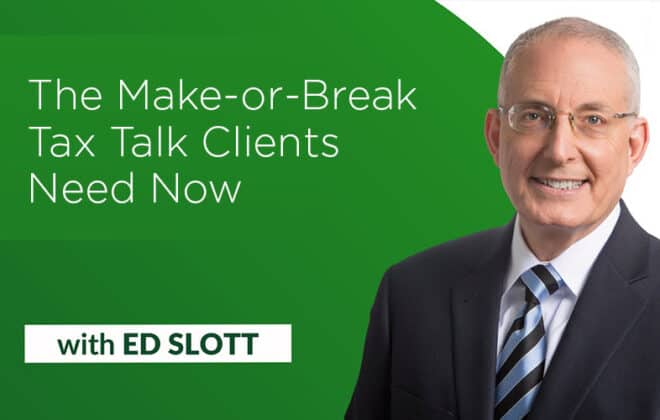How RIAs Can Unlock the Code to Organic Growth
If you’re struggling to grow your advisory practice, you’re not alone. Just look at the numbers! According to David DeVoe, Chief Executive of DeVoe & Co., RIA average organic growth has plummeted in recent years, from 9% in 2017 to 3% in 2020, with a slight uptick to 4% in 2022. DeVoe cites a lack of focus on business development as a major factor, as advisory firms have reduced investments in business development by an average of 50% over the past few years.
There’s no question that business development initiatives are critical for sustained growth. However, as we discussed on a recent episode of The Breakthrough Advisor Podcast, cutting back on biz dev efforts isn’t the only reason advisors are struggling with organic growth. Consumer behavior has found its way into a state of flux that we weren’t quite expecting.
Clients are more resistant than ever to opening a dialogue with advisors
As our esteemed podcast guest Marc Lamson, president of ASLAN Training, explained, “Things are changing. Several bodies of research talk about customers and their decision-making habits and desire or openness to work with sellers, advisors or anybody who’s going to try to influence them. The problem we’re seeing is customers are becoming less receptive or less emotionally open to working with a new advisor, talking about doing something different or moving their money.”
One reason for this resistance? Consumers are more educated than ever before. Thanks to the internet, we have access to mountains of tools and resources for managing our finances. Many people fancy themselves as do-it-yourselfers on the finance front (at least at first), and this abundance of information can make people more skeptical (and resistant) to an advisor’s overtures.
“Every year since 2019 or so, Forbes has been saying more sellers (in general) are missing their quotas than ever. So, if your goal was to grow your business and hit a certain number, and you’re not doing that, you’re not alone. We believe the correlation here is that customers are less receptive and more emotionally closed than ever, and that’s hard to overcome,” Lamson said.
Advisors need to ‘cultivate receptivity’ in order to grow
Any successful advisor worth his or her salt knows that people don’t want to be sold. They want someone to solve their problems and help them make decisions versus telling them what to do. The more we talk about our products, services, return rates, benefits of guaranteed returns and so on, the more they resist.
Prospects won’t take your calls or give you permission to drop a note into their inboxes unless you provide something of value, which is something we refer to as “permission for value.” Until then, people tend to remain what Lamson describes as “emotionally closed.” But how do you break through that barrier?
According to Lamson, his company ASLAN Training helps people make the shift from selling to creating a fertile ground for receptivity, much in the way that farmers plant a seed and fertilize the soil to help their seeds grow.
As he explained, “For advisors, your seed is your solution and the value proposition you want to share with the customer. But if you’re not creating fertile soil—which is the customer’s willingness to listen—your message (your seed) doesn’t matter. And that’s really the focus we see successful advisors making today. They’re more focused on the customer and the soil and the problem they’re solving versus their solution and selling.”
An ‘other-centered’ approach is the key to ‘fertilization’
If you’ve been fortunate enough to participate in one of ASLAN’s training sessions (something we offer through InsurMark), you may be familiar with the company’s “other-centered” philosophy. According to Lamson, when you decide to be other-centered that means you care about the client as an individual and treat them much in the same way you do your family members.
Many salespeople, including advisors, get stuck in a more self-centered mindset. This phenomenon occurs naturally for us as human beings because it’s rooted in our survival instinct.
“We think about ourselves, what’s on our agenda and what we want to accomplish—and our motive is transparent. But if my motive is to help my customer make heads or tails of the wealth of information and options for their future and decide what’s best for them—which may or may not be working with me and taking advantage of something I offer as an advisor—that shows I’m going to care about that person first,” said Lamson.
We need to focus on the client’s perspective during discovery
While Lamson admits you can’t necessarily train people to care, most people do have the capacity for empathy. You just have to decide to switch out of survival mode (and the desperation that comes with it) and train your focus on uncovering what makes the client tick and what they need. That’s what discovery should be all about, if you want to grow your business—because it does pay off in the long run.
Caring all starts with the individual, listening and learning what is unique about them and then validating their uniqueness. As Lamson explained, “People are not open to a different perspective until you understand and validate their perspective, first. We call it the Power Principle. We’re very good about giving our perspective (on our products, services, solutions, etc.). The problem arises when we lead with our perspective, because people think, ‘You don’t get me.’ This is the real problem in selling today.”
How do you put this into practice and book a discovery meeting in the first place?
During the podcast, Lamson echoed a complaint many advisors have, “Nobody wants to talk to us unless they think we can help them, but how in the world can we help them unless they talk to us?” Lamson finds successful sales reps and advisors consistently do one thing very well. They start by articulating the client’s perspective first, even when they’ve never spoken to them previously. But how?
Say a prospect downloads a whitepaper, and all you know about them is their email address and responses to a few questions they answered about their assets. Where do you go from there? Well, you don’t start with YOUR perspective. Instead, Lamson suggests, “We need to start with what’s on their whiteboard, their problems and just articulate what they’re thinking along those lines.”
For example, an advisor’s email could say something that pertains to what people in similar situations are talking about right now, like: I see a lot of people in their fifties trying to figure out their spreadsheet for retiring or how inflation and market changes will affect their retirement accounts in the next 5, 10 or 15 years, etc.
The better job you can do of honing this message so it speaks to the perspective of the individual prospect, the more receptive they will be to learn more from you.
Said Lamson, “Ineffective discovery is when we ask questions that set up what we’re trying to sell versus asking questions to validate the client’s perspective. Instead, we need to start with them first, and say, ‘This is what a lot of people I talk to are thinking …’ And when they realize, ‘Yeah, that’s what I’m thinking too.’—because we articulated their problem—they think we have the answer and we’ve been there before. Discovery is all about learning their perspective.”
Growth comes when you learn how to convert skeptics
Lamson explains this theory and provides more insight about the “other-centered” approach during the podcast. If you haven’t listened to the episode yet, you can catch the replay here.
And if you’d like to learn more about the ASLAN Training and other ways InsurMark is helping advisors like you level up their businesses, contact us! You can reach us toll-free at (800) 752-0207 or connect with us online.
As an ADO – Advisor Development Organization™, InsurMark provides solutions to meet the ever-evolving needs of financial professionals with a mission to protect and enhance the financial security of every home in America.




